Let's Connect
Our friendly and educated team is here to partner with you every step of the way. Connect today to learn of all the ways to partner with The Common Market.
Delivering local food for the common good.
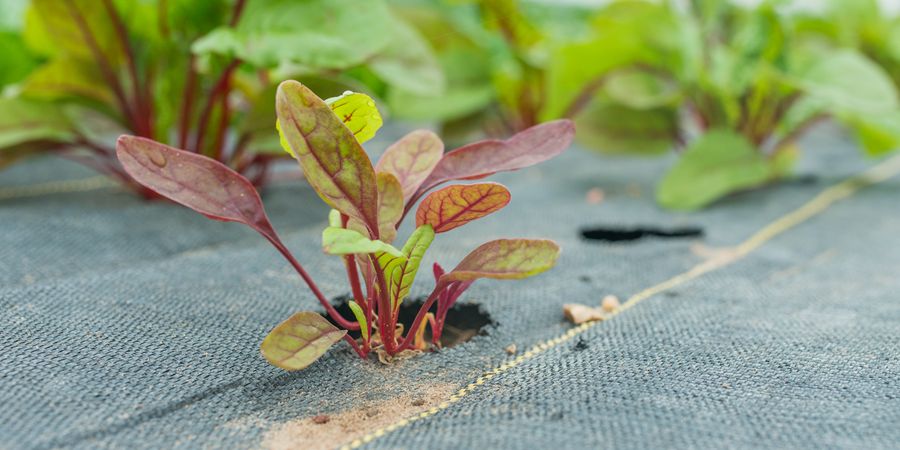
The demand for healthy, sustainably produced food is on the rise. This is true for consumers at the grocery store, and also evident in the actions of key food system players. Institutions, cities, and companies increasingly prioritize environmental and social sustainability in their procurement practices. They are seeking suppliers who can help them meet their goals to support local businesses, mitigate climate change, improve animal welfare, and safeguard human health and nutrition.
But how can these sustainability leaders be sure that the food they are purchasing is truly sustainable? And without clear market signals to provide confidence that their sustainable methods have marketable value, are enough farmers and ranchers producing this kind of food at scale?
Here at The Common Market, we realized there was a communication breakdown about on-farm sustainability practices and features with the customers who purchase their products. Moreover, the absence of a standardized framework to measure sustainability was hampering everyone along the supply chain: The family-owned and small-scale farms in our network faced unnecessary market barriers, unable to translate their ethics and production methods into market-ready language.
Meanwhile, it was difficult for anchor institutions like schools and hospitals to verify and prove the environmental and social impacts of many farms in their regions, potentially preventing them from meeting sustainability benchmarks.
In order to build resilient, equitable food systems across the country, The Common Market recognized the need to measure sustainability among our farmers and ranchers — and then to create a way for that data to flow unfettered up and down the supply chain. This realization launched a five-year endeavor to create the Farm Impact Assessment: a process to measure and communicate sustainability across our supplier network.
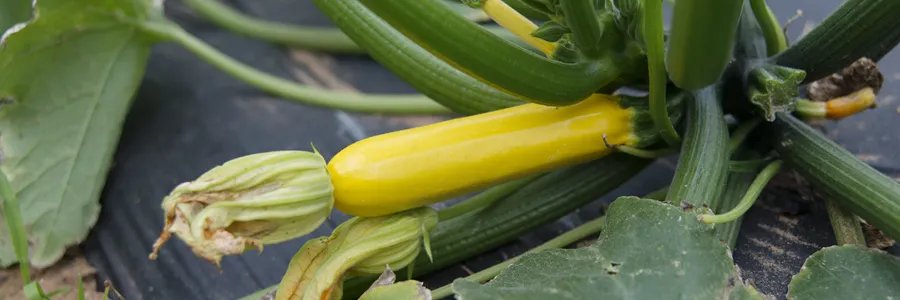
The first step toward achieving this goal brought us to Alison Grantham, founder of Grow Well Consulting. Grow Well Consulting offers a suite of research, strategy, and implementation services toward the building of localized food supply chains, and Grantham, as its leader, has substantial experience helping businesses, industry associations, foundations, and non-profits conquer entrenched problems within our food system.
Grow Well Consulting’s ethos recognizes that if we want a food system that looks and operates differently from the status quo, we need a lot more information to build creative solutions. Grantham’s team kicked off the process by investigating what the word “sustainable” means to people in the food system. Through extensive engagement of our customers, staff, board members, and suppliers, Grow Well Consulting defined standards and benchmarks in key categories: environmental and labor standards, ownership and governance features, distance to purchaser, animal husbandry practices, and more.
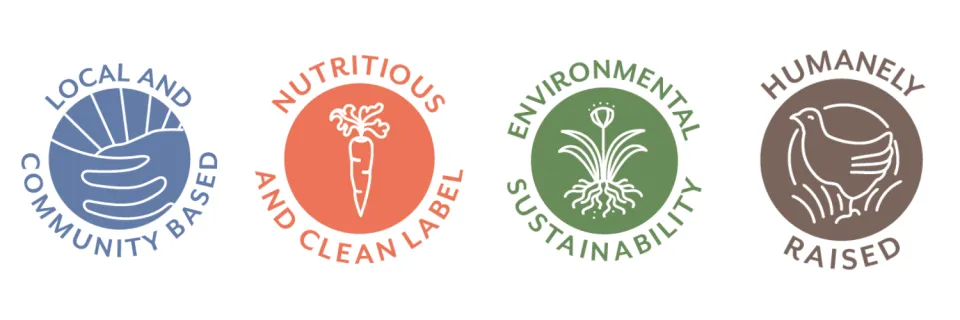
The assessment’s primary job is to assess how closely each farm or ranch aligns with the values of The Common Market and those of key players in wholesale markets.
Our core values are the foundation of our mission: to connect communities with good food from sustainable family farms. The assessment determines whether suppliers’ practices and ownership structures are consistent with each of these four values.
From the start, research into customer needs shaped the impact assessment’s benchmarks, ensuring they correspond to the sustainability priorities of key market players.
For example, to feed their communities, most of the schools, hospitals, and other anchor institutions in the U.S. contract with one of the three major food service companies: Sodexo, Aramark, and Compass. That means that the sustainability priorities set by these three companies influence wholesale markets across the country.
The impact assessment measures how closely our suppliers are aligned with these priorities, particularly in the substantial areas of overlap with The Common Market’s own values: environmental responsibility, nutrition and food safety, and commitments to improving equity and local food economies.
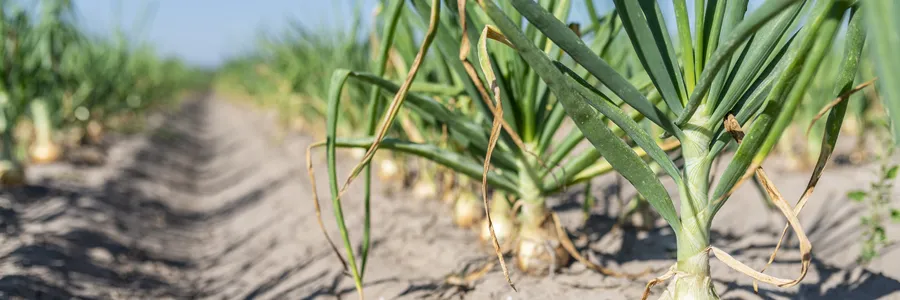
As powerful and inspiring as these values sound, Grow Well Consulting’s Alison Grantham notes that “words are only as valuable as the process that validates them.” The impact assessment substantiates our values, giving them real-world context and standardized metrics. The assessment begins with a rigorous desktop review of a farm’s complete public records that glean information including ownership structure and identity, labor practices, and possible food safety issues. In the next step, we conduct an interview, on-site if possible, to verify the production practices being deployed.
Measuring the positive impacts of sustainable procurement is nearly impossible without data. The impact assessment provides a standardized vetting process for all suppliers, and it also quantifies buyers’ support for localized supply chains, regenerative farming practices, and historically underserved farmers.
Moreover, the assessment helps us maintain a continual dialogue between the producers on one end of the supply chain and our customers on the other. The responsive framework can keep pace with evolving market demands, social and ethical considerations, and definitions for terms like “regenerative.”
For us at The Common Market, the impact assessment offers a way to be a better partner to the producers in our supplier network.
Third-party certifications — such as B Corp, Certified Humane, Fair Trade, Georgia Grown, and many others — provide the same verification of sustainable and ethical methods as our impact assessment. However, obtaining a third-party certification for every sustainability category is prohibitive in terms of both cost and time for the small-scale and family-owned operations we partner with.
By assessing our supplier partners ourselves, we get a complete picture of their sustainability features and practices without forcing them to shoulder an administrative and financial burden. It is a more accessible way to measure and communicate their alignment with what the market increasingly demands.
This process also honors and accommodates the diversity in practice and geography of our network. “Asking all producers, ‘how diverse is your crop rotation?’ when you’ve got folks growing mushrooms in glass bottles doesn’t necessarily make a lot of sense,” said Alison Grantham of Grow Well Consulting. The impact assessment offers different tracks for different types of producers, thereby “making sure we can understand and accommodate the nuance of those different systems.”
Finally, we should mention that greater transparency — about what customers want, about who our producers are, about the practices they’re using in the field or on the pasture — will benefit our food system as a whole.
If the impact of sustainability measures is communicated to and understood by buyers, they will support greater improvements to sustainability. This positive feedback loop will nurture the growth of a new kind of food system, one rooted in human and ecological health and responsive to the needs of our communities.
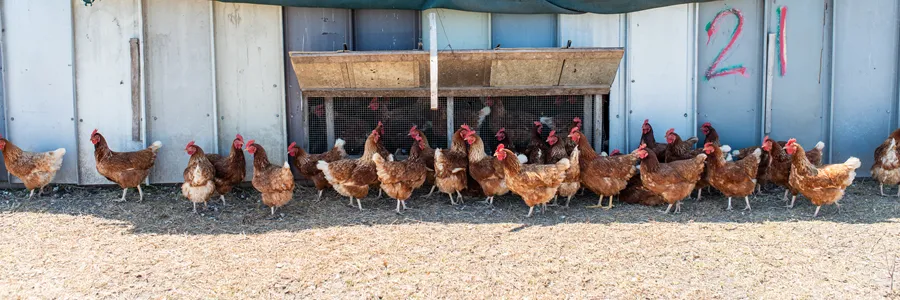
Our friendly and educated team is here to partner with you every step of the way. Connect today to learn of all the ways to partner with The Common Market.
"The Pink Lady apples were fantastic. We get our apples from a few different places and I must say that those were probably the best out of a non-apple season."
— Jennifer Monaco, Executive Chef, Sustainable Fare LLC, The Lawrenceville School